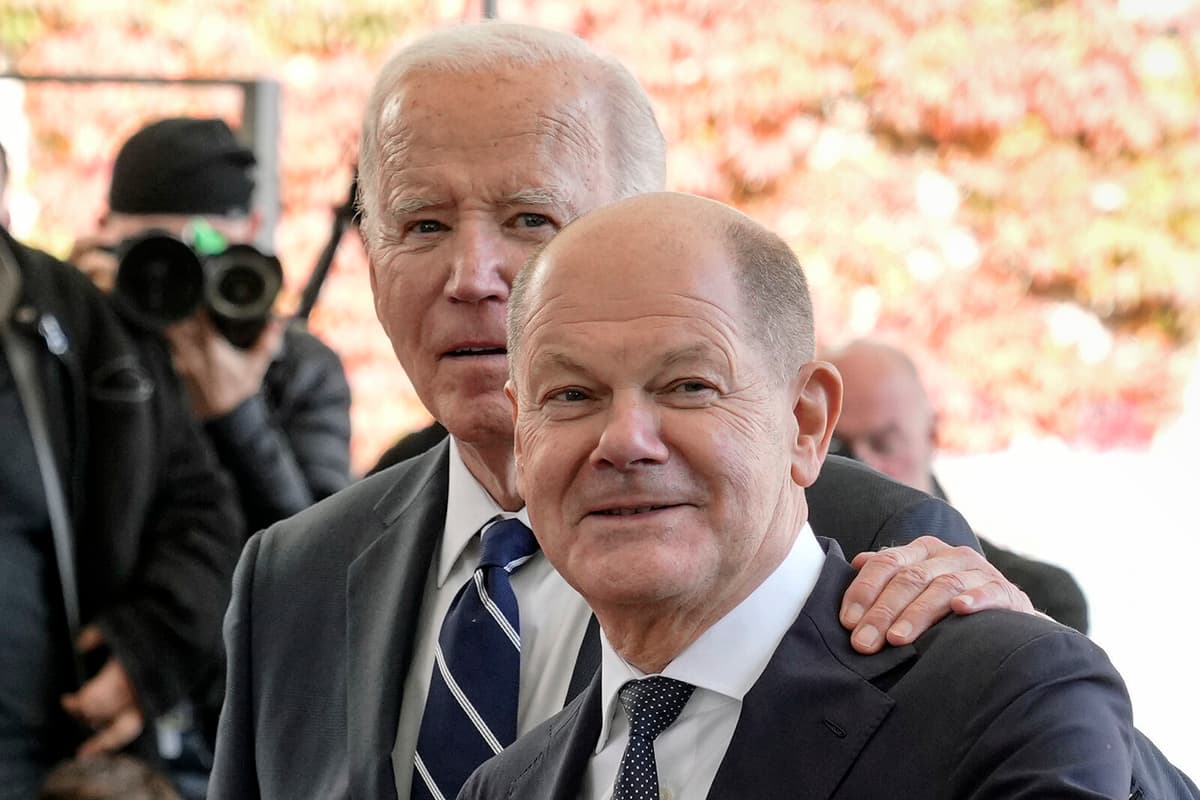Support for Scholz has declined since he succeeded Angela Merkel in 2021. Last week, measurements from the opinion institute Insa showed that he is the least popular of 20 German top politicians, writes Bild. In the same measurement, Boris Pistorius is in first place.
Support from the leadership
Scholz still has support from the party leadership, the harshly formulated statements come from other parts of the party.
We have two possible candidates – one is Germany's most popular politician and the other is the least popular, to put it simply, says Maximilian Mumm, mayor for SPD in the city of Maifeld, to Financial Times.
It says it all.
Mumm has said that no SPD posters will be put up in his city.
Why would we spend money on an election campaign for a candidate we don't believe in and don't think is capable?
Others claim that Scholz is actually doing a Biden, by holding on for too long.
"The opinion figures are weak, the doubts are great, but the belief in one's own strength is unbroken: Scholz is doing a Biden", writes Lorenz Hemicker, news chief at Frankfurter Allgemeine, on X.
Still loyal
Boris Pistorius has, however, held fast to his loyalty to Scholz. He says in a
that he himself is not "available" to run for the office of Federal Chancellor and that the discussions of the past weeks have damaged the party. Statements from Scholz in recent times have also been interpreted as that he has no plans to give up the chance to continue as Federal Chancellor in the EU's most populous country.A social democrat from the federal state of Rhineland-Palatinate describes Scholz as too self-confident and a "catastrophic candidate". But he says to Frankfurter Allgemeine that he does not believe it is possible to stop Scholz from becoming the party's candidate.
In this respect, the ongoing debate is pure theater.
The new election planned for February 23 will take place if Olaf Scholz's government falls in a confidence vote on December 16. Scholz is currently leading a minority government after his government coalition broke apart, and has historically low confidence figures.
Corrected: In an earlier text, the wrong month was stated for the confidence vote.
Germany's government broke apart at the beginning of November after Finance Minister Christian Lindner (FDP) was fired. But the government coalition with the social democratic SPD, The Green Party, and the liberal FDP had been struggling internally for a long time. The triggering factor was a conflict over the budget.
The three coalition parties have been struggling in the opinion polls and Federal Chancellor Olaf Scholz has historically low confidence figures.
On December 16, a confidence vote will be held in the Bundestag in Berlin, according to an agreement between SPD, The Green Party, the Christian Democratic CDU, and its Bavarian sister party CSU.
If Scholz's government loses the confidence vote, new elections will be held on February 23.
Olaf Scholz (born 1958) has been Germany's Federal Chancellor since December 2021.
He was first elected to parliament, the Bundestag, for the social democratic SPD in 1998 and became Labor Market and Social Minister in the coalition government with Angela Merkel's CDU 2007–2009. After seven years as mayor of Hamburg 2011–2018, he returned to government as Vice Chancellor and Finance Minister in the next coalition with CDU 2018-21.
After the 2021 election, Scholz became Federal Chancellor in a coalition with The Green Party and the liberal FDP.
Scholz has been married to party colleague Britta Ernst, who has been regional minister in Schleswig-Holstein and Brandenburg, among other things, since 1998.






